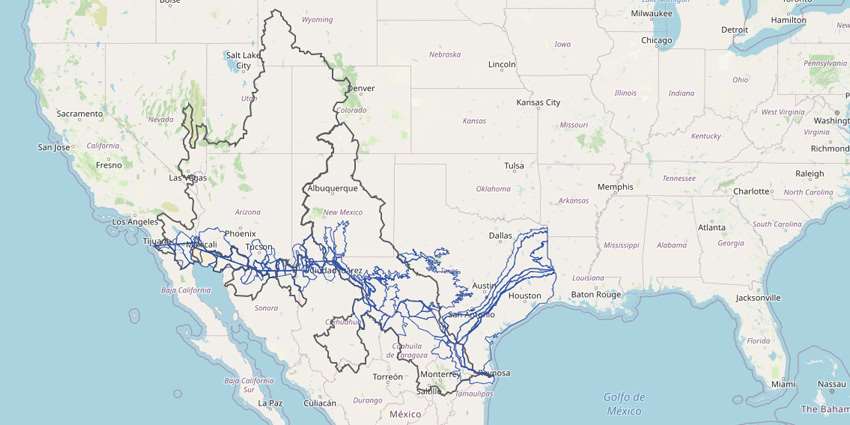The Permanent Forum of Binational Waters is hosting the U.S.-Mexico Transboundary Groundwater Conference, titled Innovation and Creativity: Strategies for Unprecedented Challenges. The interactive online event will be Oct. 14-15, 2020 via Zoom. Cohosts include Texas A&M University and the Instituto Mexicano de Tecnologia del Agua (IMTA).
The forum’s objective in having the conference is to explore and analyze innovative perspectives on transboundary groundwater resources management between Mexico and the United States with discussion panels. Event organizers hope to identify strategies to assess current and future transboundary conditions from a legal, technical and managerial perspective.
According to the forum’s director, Rosario Sanchez, Ph.D., there is no more surface water available for domestic use along parts of the U.S.-Mexico border.
“The border population is expected to increase, to duplicate, in the next 20-30 years. Where are we going to get that water from? It’s going to come from groundwater,” Sanchez said. “And we don’t have a legal framework that governs transboundary groundwater resources at the border region.”
Sanchez said another goal of the conference is to the spread the word binationally, at all scales and different levels of authority, “about the importance of the negligence of transboundary groundwater resources in the border region.”
“We are trying to be creative; we are trying to be innovative, not just in the topics but in the format,” Sanchez said.
The format of the conference is meant to be a discussion. “We are covering broad and new topics that should be discussed; that should be addressed, and we are hoping to get a good document out of this with the results of what we have learned in the conference.”
Sanchez is hoping a diverse audience of attendees will join the discussion from both sides of the border including local, state and federal government officials, students and researchers, private industries, nongovernmental organizations and the press.
“There’s not a lot of people working on this topic because it’s very complex,” she said. “There’s not enough data, there’s not enough research, but the few people who are working on transboundary groundwater across the border are really passionate and very successful at what they have been doing.”
“All we know is that we are pumping groundwater every day more as the population grows regardless of climate change. We have more people, that we know,” Sanchez said. “How do we face these unprecedented challenges?”
The conference will have keynote and themed lectures, including:
- Climate change and transboundary groundwater systems, Christopher Milly, Ph.D., research hydrologist with the U.S. Geological Survey
- The human right to water in a transboundary context, Carolina Escobar, Ph.D., IMTA and Edith Kauffer, Ph.D., Center for Research and Higher Studies in Social Anthropology-Sureste
- Transboundary water ethics and tribal rights, David Groenfeldt, Ph.D., Water Culture Institute and University of New Mexico
- The role of financial institutions in sustainable transboundary water management, Rick Hogeboom, Ph.D., executive director at the Water Footprint Network and assistant professor at the University of Twente, The Netherlands
There will be four discussion panels throughout the event:
- Panel I: Groundwater depletion and water security in the Rio Grande/Bravo Basin vs Colorado River Basin
- Panel II: Groundwater and surface water interactions: the case of the Colorado River Basin vs Rio Grande/Bravo Basin
- Panel III: Potential models of transboundary groundwater management
- Panel IV: Transboundary groundwater and the state of current numerical models
On the forum’s website, register for the event, see the conference materials including the agenda, language translation information and more.
In addition to the conference, the forum hosts monthly events known as Coffee Breaks via Zoom. The first Coffee Break, Water Deliveries from Mexico to the U.S.: The 1944 Treaty and Conciliation Points, was in August. The event was recorded and can be viewed here.
The next Coffee Break is Tuesday, Sept. 29, 4:30-6 p.m. with special guest Sharon Megdal, director of the University of Arizona Water Resources Research Center. The topic, U.S.-Mexico Transboundary Groundwater: Withdrawals and Binational Implications, is a teaser for the U.S.-Mexico Transboundary Groundwater Conference, Oct. 14-15.
The Zoom link for the Coffee Break events will be shared on the event page beforehand, or people working on or interested in binational waters issues from academia, government, nongovernmental organizations and others can register to become a member of the Forum’s Network to receive emails about future events.


